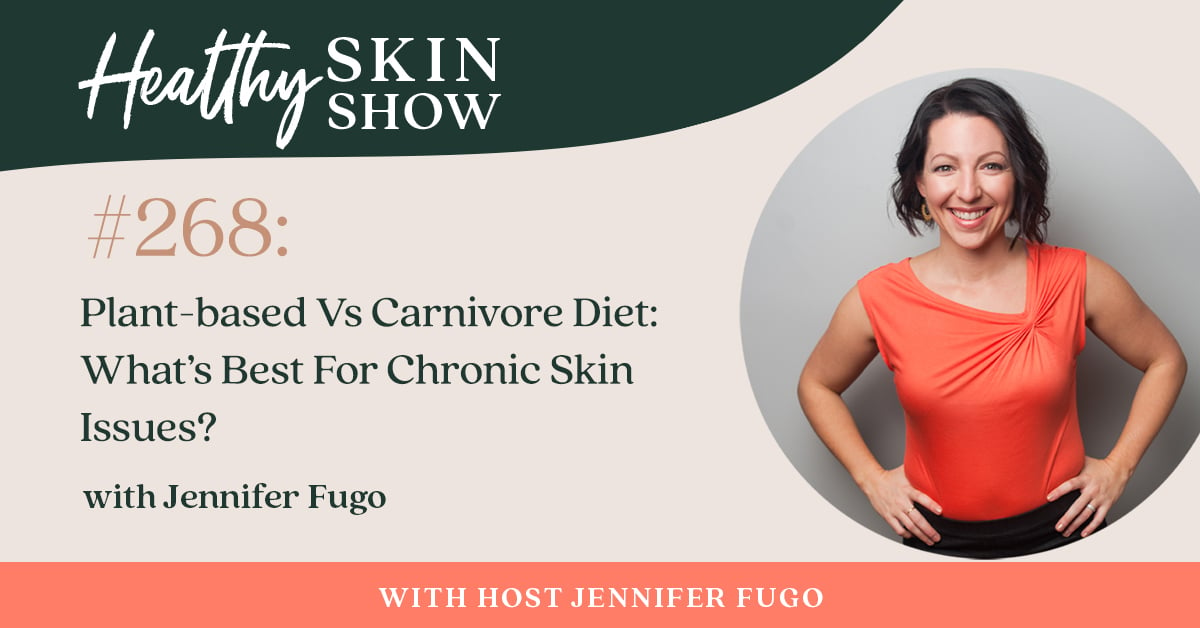
This episode is bought to you by Quell — to help support rebuilding healthy skin from the outside-in + inside-out!
Take 10% off your next order! Use promo code QUELL10 at check out — Get started HERE!
– – –
Have you read online that going plant-based or carnivore will totally heal your skin?
I’m sure you’ve probably come across this type of information on social media or in chat forums where people swear that what worked for their skin is the magic answer for everyone.
To be honest, I have intentionally steered clear of this topic for a long time now because I wasn’t sure how to cover it. I’ve certainly been pitched by staunch proponents of each diet to share their opinion here on the Healthy Skin Show about why their diet approach is best.
But my concern is that these conversations can be incredibly one-sided and, even at times, emotionally manipulative.
Diet is so deeply intertwined with what makes you who you are physically, emotionally and mentally.
So I wanted to find a way to share my clinical thoughts on both of these very popular diet trends without the dogma. AND while also being clear about my personal diet bias (based on my current clinical experience and how I personally eat).
My hope is that the insights shared here will help you make a more informed decision that truly is best for you, rather than an emotional choice that doesn’t center you in the equation.
Or, listen on your favorite app: iTunes (Apple Podcasts) | Spotify | Stitcher | TuneIn | Subscribe on Android
In this episode:
- Plant-based vs Carnivore diet – which is better in my opinion?
- My clinical diet bias (so you can keep this in mind)
- Pros + cons of a plant-based diet
- Why plant-based diets may improve your rashes
- Pros + cons of a carnivore diet
- Why going carnivore could improve your rashes
- My thoughts on diet dogma (especially as a nutrition professional)
Quotes:
I believe that each person bears the responsibility of figuring out the best way to support their body from a dietary standpoint.
No one should be bullied or shamed for their dietary preferences or choices.
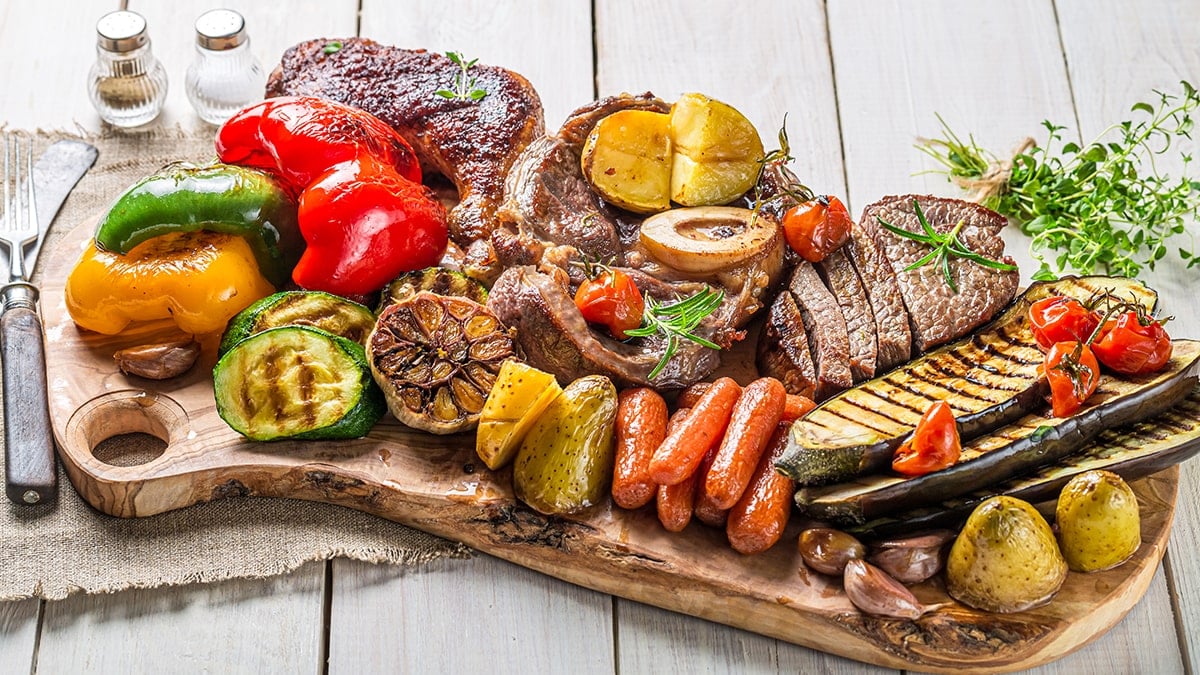
268: Plant-based Vs Carnivore Diet: What’s Best For Chronic Skin Issues? (FULL TRANSCRIPT)
Welcome back to episode #268 of the Healthy Skin Show!
In today’s episode, I wanted to explore the concept of whether a plant-based or carnivore diet could be better for chronic skin problems such as eczema or psoriasis. There’s a great deal of debate online over what works best and what can be concluded first is that there is no ONE diet best for skin problems – especially when it comes to plant-based or carnivore.
For every person who says that one of these options drastically improved their skin, you can easily find another person who had an awful experience.
And that’s why it shouldn’t come as any surprise that I don’t think that one of these diets is superior to the other.
Before you turn off this episode because you think that I just gave everything away, I wanted to share a more nuanced explanation of the pros and cons for each dietary approach that also includes my clinical experience (so what I’m seeing in practice working with people).
I also want to state my bias upfront before going further into this episode so that you can keep this in mind.
After working with clients since 2017, I find that most people feel healthier physically, mentally and emotionally by eating as broad of a diet as possible.
What that will look like from person to person varies, and ultimately I don’t have some ax to grind with anyone who chooses to eat in a particular manner.
I believe that each person bears the responsibility of figuring out the best way to support their body from a dietary standpoint.
I’m a big fan of “you do you”.
Depending on various circumstances, I may ask questions or make suggestions based on clinical lab data and symptoms based on what we currently know from research to facilitate conversations that help a client make decisions.
But ultimately the choice of how to eat is up to you – without judgment on my part.
And if you want to know how I personally eat (because it might feel important or relevant to some who are listening) – I eat a broad diet of meat and other animal-based products along with lots of plant foods too (as I am an avid home gardener).
So with that all said, let’s dive in!
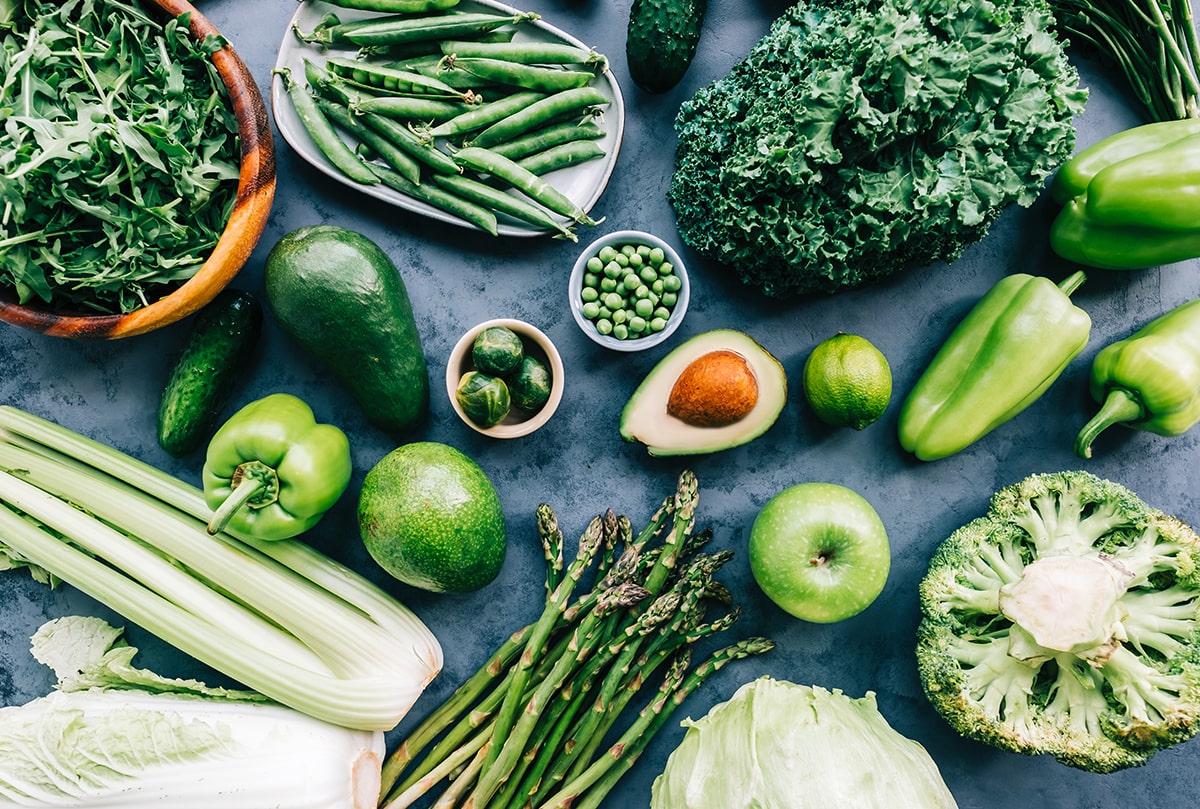
Are Plant-Based Diets Best For Skin Rashes?
We’ll first talk about plant-based diets which have become incredibly trendy online.
The positioning of the plant-based diet is that it’s reducing inflammatory foods on your plate.
Admittedly, increasing plant-based foods could potentially add more phytonutrients and fiber assuming that you truly follow a whole foods version of this diet (rather than just buying food products marked as plant-based which could be just as processed as their non-plant-based counterparts).
So the type of plant-based diet certainly matters here.
That said, it is absolutely untrue that everyone reaps the benefits of going plant-based for chronic skin problems.
Some people’s skin can actually worsen along with GI issues like gas and bloating when going plant-based.
This can be due to a drastic increase in fiber and starches that your gut microbiome isn’t used to, or it may be due to underlying SIBO or other microbiome imbalances.
For others, it can worsen underlying nutrient insufficiencies simply due to the fact that plant-based diets are naturally low in certain nutrients such as Vitamin D, the active form of Vitamin A, iron, zinc, and Vitamin B12.
Sometimes there is an issue with lower protein intake if you’re not careful since plant-based protein sources tend to be more starch-heavy. And the increase in starch might not play well in your GI tract if you’ve got fungal overgrowth present.
So when a client’s skin improves on a plant-based diet, I want to know why. Equally, I want to understand why a different client’s skin got worse increasing plants.
Rather than taking the improvement or worsening at face value, I find it incredibly beneficial to dig into what’s driving the change. This feedback is such a critical part of the process of unraveling hidden issues under the surface.
As I already shared, a plant-based diet directly impacts the gut microbiome due to fermentable fibers found in many plant foods which is why it can potentially shed light on overgrowth within the gut.
One sneaky thing I’ve picked up on after working with so many clients who saw improvement going plant-based is that they typically have hidden H.pylori infections lurking.
And this explains why they tend to react poorly to meat and more animal-based protein sources. Having this type of issue that then drives low stomach acid and other imbalances further downstream in the gut which could be partly to blame for the inflammatory cytokine generation happening within the GI tract.
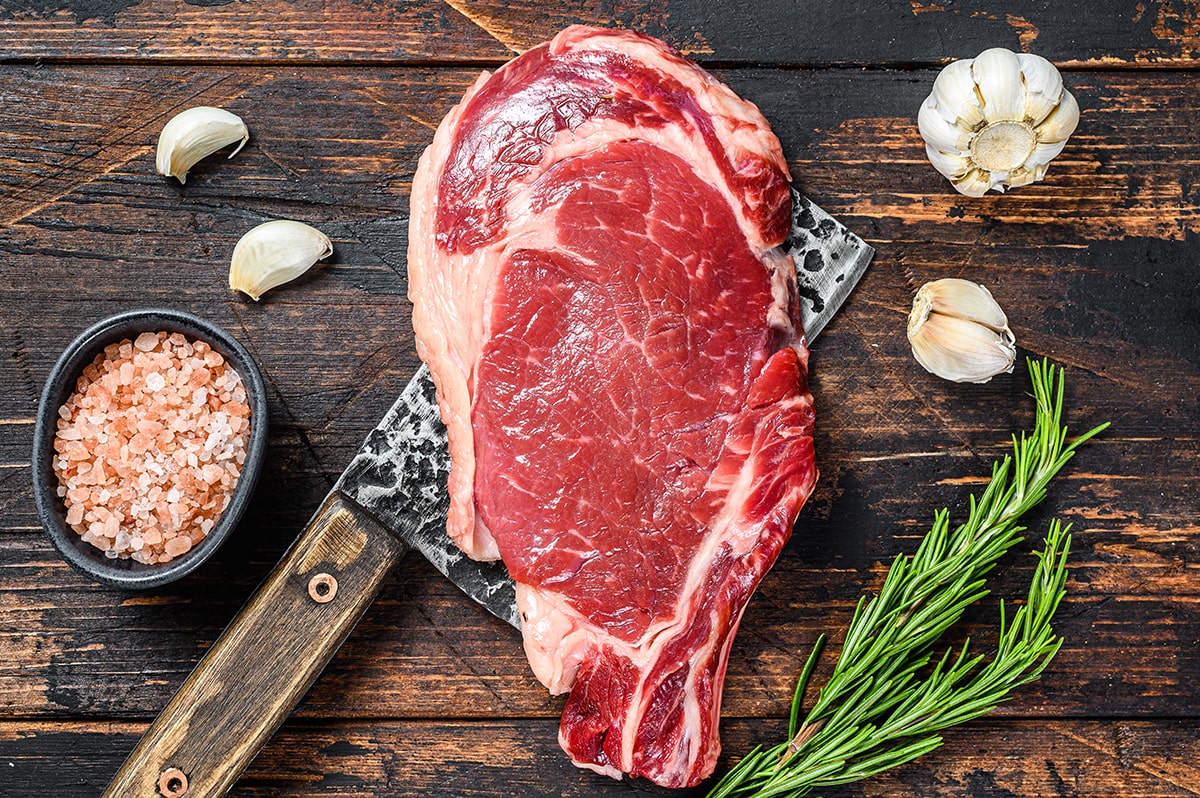
Is A Carnivore Diet Best For Skin Rashes?
When we turn to the carnivore diet (which has also become very trendy these days), there exist both people who’ve seen massive improvements in their skin and other symptoms as well as those who’ve gotten much worse and felt horrible on the diet.
A carnivore diet generally encourages people to consume nutrient-dense animal foods ONLY including organ meats.
This last tidbit is crucially important because generally the only time I see a folate deficiency is in those following a carnivore diet who did not eat organ meats (specifically liver).
A challenge with this diet is consuming animal products that come from sustainable + clean sources (ideally from a regenerative farming model). As with the plant-based diet, sourcing and quality matter here especially since toxins are stored in animal fat and there’s a greater risk of antibiotic and hormone exposure in factory-farmed animal products.
The diet’s biggest issue is the lack of phytonutrients and fiber since animal products are totally devoid. And it’s crucial for anyone following a carnivore diet to be incredibly mindful of hydration, salt intake, and other minerals like magnesium because the risk of electrolyte imbalances is quite high.
Because of the lack of plant foods specifically with any fermentable fibers, we tend to see with time a depletion in healthy commensal gut flora since fiber (not protein) is their food.
Later on, it can also be quite challenging to reintroduce plant foods which require a slow onboarding process to avoid GI symptoms as your gut flora adjusts to the new fiber intake.
So when someone seems to do better cutting out all plant foods to veer towards carnivore, again I will ask WHY is it that they are seeing improvements.
I believe this can come down to two factors –
The first is nutrient needs. I would argue that the carnivore diet focuses on foods that are much more nutrient-dense per serving compared to plant foods on key nutrients including many fat-soluble vitamins like A and D.
Someone who has a greater need for nutrients may find that their body does better with such concentrated nutrition.
And second, the gut microbiome is likely overgrown in the small and possibly large intestine such that the fermentable fibers contribute to excess gas production depending on the organisms present (which is the hallmark of SIBO in the small intestine and large interesting bacterial overgrowth (LIBO) in the colon).
This also begs the question of whether fungal overgrowth is present and may be encouraged depending on what your previous diet looked like from a starch and sugar perspective. (I want to be clear that diet alone is not the sole factor impacting fungal overgrowth.)
So the removal of the bacteria’s food source reduces the associated symptoms that include skin issues.
I will say that the claim I’ve seen mentioned online that people react to plant foods because they are “detoxing from oxalates” is ridiculous.
I’ve previously discussed the most common issue with oxalates in episode 161, and their connection to fungal overgrowth. Plus, we commonly have a specific type of gut bacteria from the Oxalobacteraceae family that is quite efficient at breaking oxalates down.
So with this all said about plant-based and carnivore diets – I still stand rooted in the notion that a blend of both – animal and plant foods – offer us the best of both worlds.
BUT – I also understand the concept of bio-individuality and allowing each person the right to decide what’s best for themself.
I believe that no one should be bullied or shamed for their dietary preferences or choices.
While I am fully aware of the social + political conversations around diet, I’ve intentionally left this out of this episode because I often find that it only makes people either withdraw or feel emboldened to attack others who share a differing perspective.
I don’t find that it invites one’s curiosity to explore what might be best for oneself. At the end of the day, we all want to do what’s best for the animals and make choices that make us feel good about what we’re eating.
So if you’re interested in diving more into those more social or political conversations, you can find that type of information elsewhere.
In my practice, I don’t find that these types of conversations give clients the space to genuinely explore what’s best for them and their body.
I work with clients who eat a variety of diets that span the spectrum of plant-based to carnivore. And it’s one of my personal goals to allow the client to lead the way – not to tell them or scare them into making a change that ultimately isn’t rooted in what’s best for them.
Nuanced conversations are only possible when there is no judgment and no agenda present other than – do what’s best for you and have the freedom to make changes as needed.
And if you choose to explore either of these diets, my own word of advice would be to ask WHY the diet is or is not helping you. To dig into that question will likely provide you much more information than simply following a diet that could be masking issues under the surface that deserve your attention.
If you’ve got any questions or thoughts to share about this, leave a comment below so I can address them.
I encourage you to share this podcast with anyone who is considering doing either of these diets or is recommending that you do them. This could help them better understand their body and potential issues that should be explored.
Thank you so much for tuning in and I look forward to digging deeper with you in the next episode!
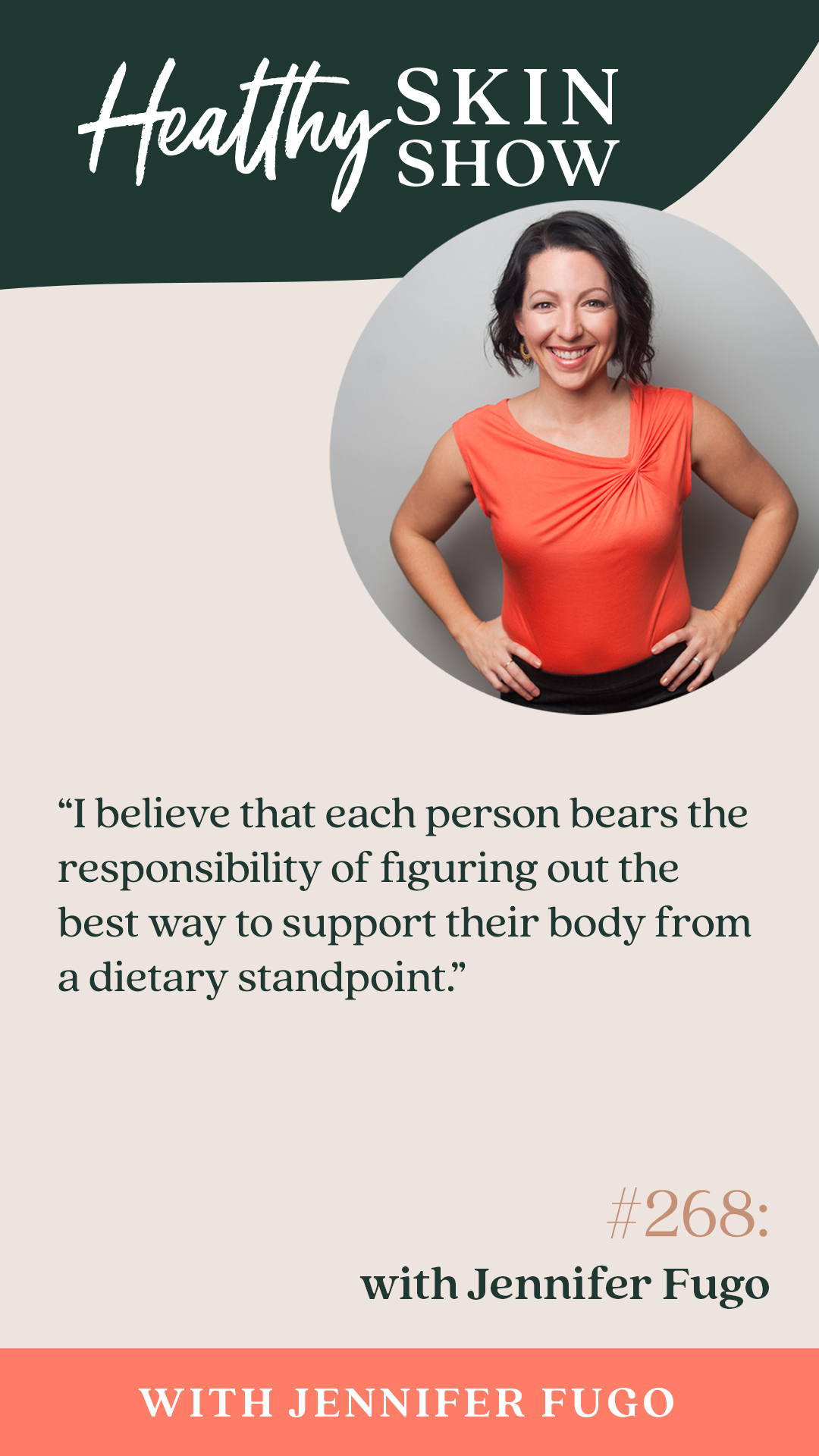
Jennifer Fugo, MS, CNS
Jennifer Fugo, MS, CNS is an integrative Clinical Nutritionist and the founder of Skinterrupt. She works with women who are fed up with chronic gut and skin rash issues discover the root causes and create a plan to get them back to a fuller, richer life.





